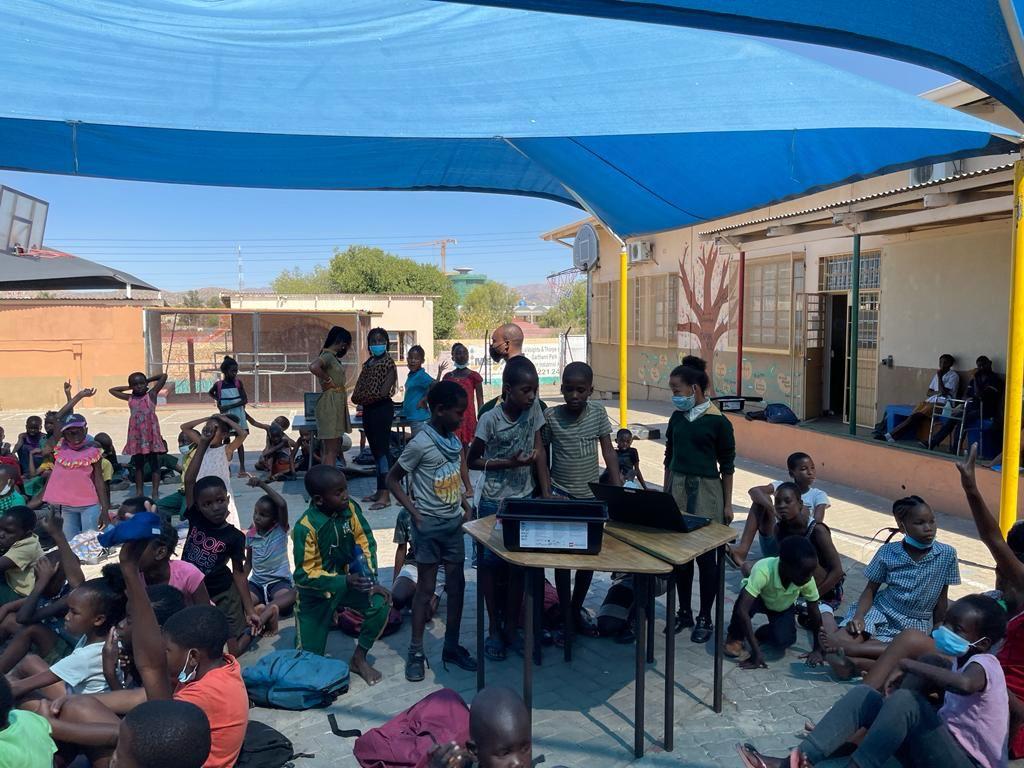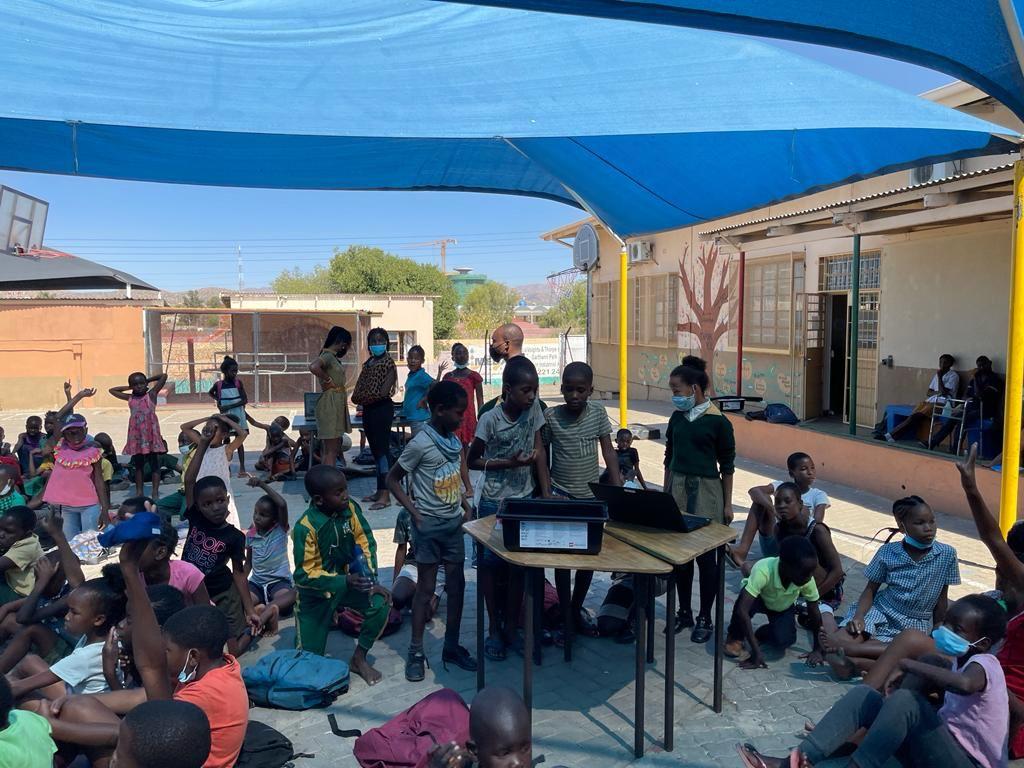Being the change they want to see in the world
Rotary clubs unite people who take action to solve the world’s most persistent issues and they sponsored MindsInAction to give learners in lower primary to get STEAM (Science, Technology, Engineering, Art and Mathematics) education.
Desiree GasesThe training started on 19 October 2021 and will go on for three modules at the Bernhard Nordkamp Centre in Windhoek. Each module consists of eight workshops. Learners attend classes on Tuesday afternoons.
Research has shown that children who engage in integrative STEAM activities develop an intuition for creativity, authentic interest in innovation, develop a culture of making and start to explore entrepreneurship opportunities from a young age.
STEAM education allows children, especially girls, the opportunity to explore a wider range of career options and not limited to any particular field. Unesco believes that STEAM education is essential to help prepare the youth for that future. Technology is already a part of our daily lives. However, in sub-Saharan Africa, particularly Namibia, there are large gaps in basic technology skills. To address this gap, the Auas Rotary Club in Windhoek, together with local partner MindsInAction, have decided to embark on a STEAM partnership project.
Integrative STEAM education is about intentionally combining maths and science concepts with technology, arts and engineering skills. With this STEAM partnership the Auas Rotary Club and MindsInAction aim to increase interest in science and mathematics outside the classroom. The initiative aims at exposing young people in Namibian communities to creative education programmes with focus on Integrative STEAM (science, technology, engineering, art and mathematics) to provide skills and access to tools used in rapid prototype development and to created awareness for economic opportunities in the creative sector.
The mission of the STEAM partnership project is:
•To expose children to STEAM educational activities using hands-on learning systems.
•To prepare children for future jobs, challenges, and technological advancements.
•Enhance skills in problem identification and design thinking process.
•Create an environment that promotes learning, respect, trust, support and personal growth and productivity in order to develop effective and committed youth.
•Create reports to advice policy makers on procedures to provide equal opportunity in STEAM to prevent gender disparities and economic standing exclusion.





Comments
My Zone
No comments have been left on this article